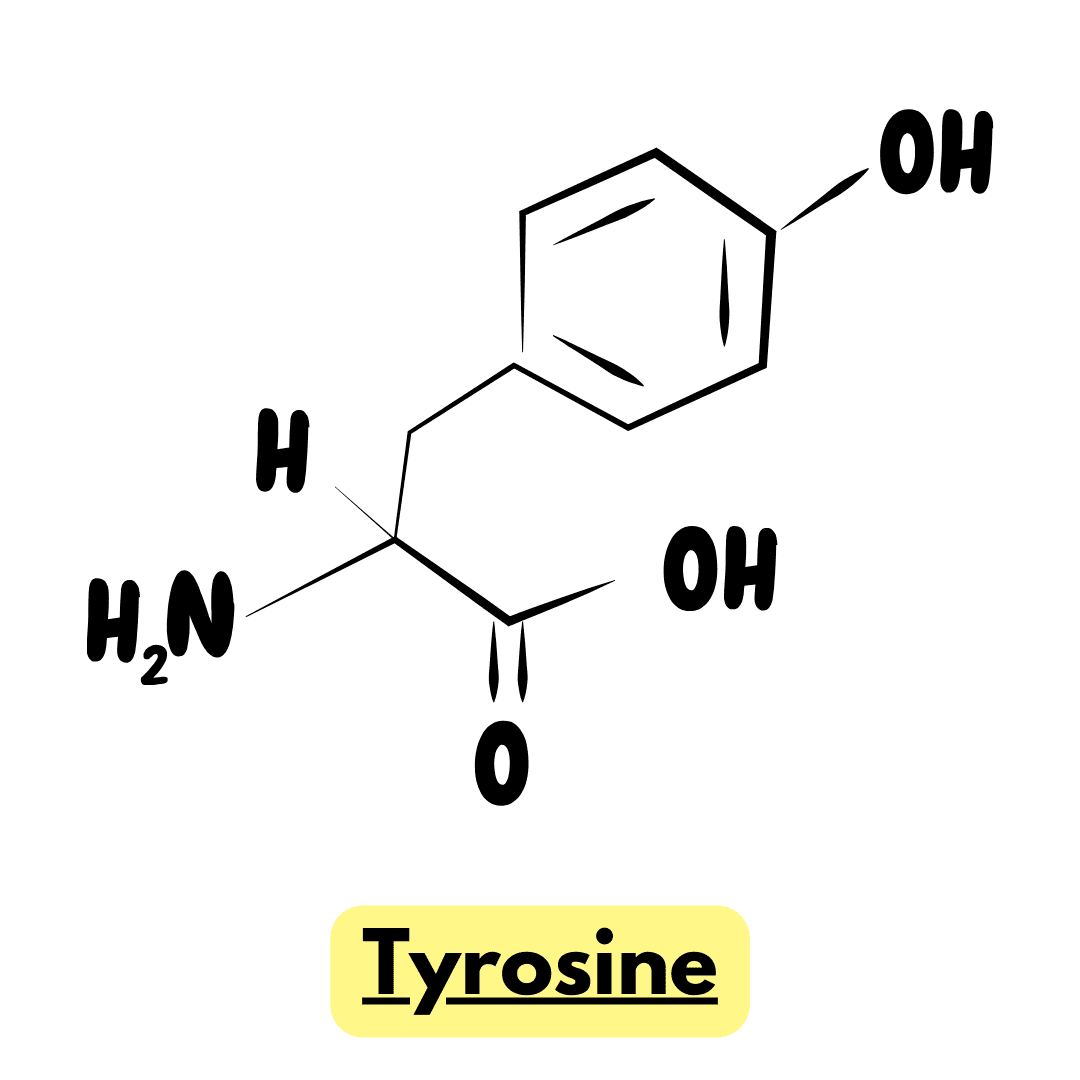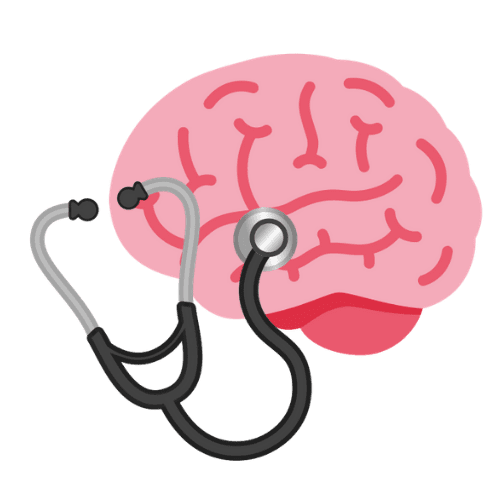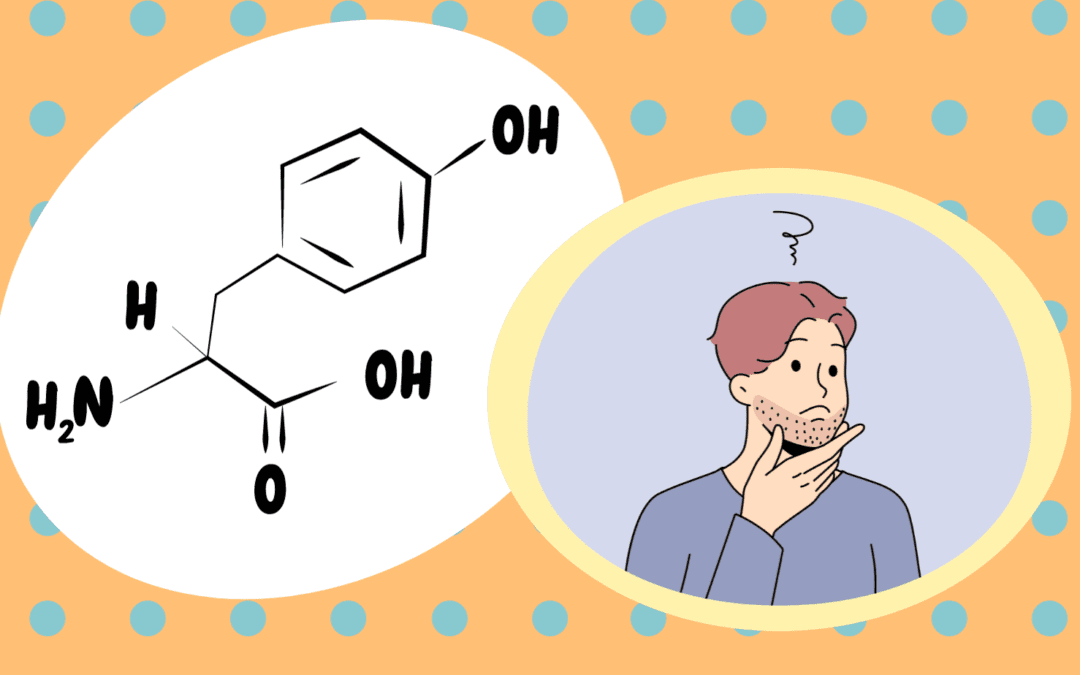The symptoms of ADHD, such as restlessness and poor concentration, can really impair our functioning and productivity – with significant consequences for our mental wellbeing and self-esteem. For several years there have been a couple of pharmaceutical options to reduce the impact of these symptoms – the most well-known are stimulant medications like Ritalin and Adderall. They’ve arguably become household names, and I’m often still surprised by their firm place in pop culture, from plotlines for episodes of The Simpsons, to lyrics in My Chemical Romance songs.
However, these ‘traditional’ options have always been a controversial point of debate. Despite strong evidence that they work, some people can experience unpleasant side effects to the drugs. Increasingly people are opting for non-pharmaceutical and ‘natural’ options, of which there’s several new kids on the block. One of those most discussed on TikTok and Reddit is L-tyrosine.

What is L-Tyrosine?
Tyrosine is an amino acid – a chemical in the brain which contributes to the production of neurotransmitters, such as dopamine. The L often found in front of the word refers to the amino acid’s structure, and we can consider L-tyrosine and tyrosine to be the same thing.
Neurotransmitters are important fuels that our brains use to maintain attention and regulate emotions. Funnily enough, people with ADHD often have lower levels of neurotransmitters than those without ADHD, and research suggests that this is a big reason why we struggle with staying alert and focused. One possible reason to explain why we might not produce as many neurotransmitters, is that we have low supplies of one of the key ingredients – tyrosine.
The idea is that we can take L-tyrosine supplements to ‘top up’ our levels of the chemical in our brain, and use it to produce more neurotransmitters, thereby reducing the symptoms of ADHD.
Some individuals have said that they experienced improved concentration, better sleep, and improved mood when they took supplements to increase their brain’s levels of L-tyrosine.
Where can we get L-Tyrosine?
We can get some tyrosine from the food we eat. Foods high in dietary tyrosine include:
- Soy products
- Meat
- Nuts and seeds
- Cheese and other dairy products
Amino acids like tyrosine are one of the building blocks that make proteins, so a good rule of thumb is to go for foods that are high in protein.
Our bodies make tyrosine using another amino acid called phenylalanine, so eating more of this can also boost your levels of L-tyrosine. Conveniently, phenylalanine is also often found in the same foods as tyrosine.

You can also buy amino acid supplements including L-tyrosine. However, it is usually best to try and get nutrients from your diet before taking supplements. Your body will often only absorb what it needs, so most of what you ingest in a concentrated tablet or capsule will not be absorbed. It’s also a lot cheaper to try and eat more of a certain nutrient, than taking manufactured supplements! It is commonly said in medicine that when you pay for an expensive supplement, you’re really just paying for expensive wee…
Is there any evidence that L-tyrosine works?
Unfortunately, at the time of writing there isn’t any strong evidence in support of L-tyrosine supplements improving ADHD symptoms.
A 2015 review paper, summarising 15 smaller studies, found that tyrosine may be helpful and improve memory in extremely demanding situations, but this study wasn’t really specific enough to conclusively say it’s helpful for ADHD. In fact, the study deliberately did not include any participants with ADHD (1).
Several other studies (2,3) have shown some benefit on cognition, but again, they weren’t looking at this in the context of ADHD. It’s really important that studies specifically report an effect in people with ADHD, before we can conclude that something helps the symptoms of ADHD. After all, the symptoms are there because there is a difference in how ADHD brains function.
There are studies that look specifically at the impact of L-tyrosine on the symptoms of ADHD, from as early as 1987 in fact (4) – but none have reported it to be helpful.
So although there are lots of anecdotal stories on social media of L-tyrosine helping some people with ADHD, there unfortunately isn’t any scientific evidence to back it. That doesn’t mean there won’t be evidence in the future, as we might just not have found the right link yet – but at the minute, we can’t conclude that there’s a benefit.
Some people might still want to give L-tyrosine a chance, and that’s ok too! However, make sure you read up on the potential side effects and complications if you’re considering it.
Precautions and Risks
Side Effects
Serious reactions are thankfully rare, but there are some side-effects reported by those taking L-tyrosine supplements. They include:
- Nausea and stomach upset
- Heartburn
- Fatigue and tiredness
- Joint pain
It’s unknown if L-tyrosine supplements could harm an unborn baby, so it’s best not to take them if you’re pregnant, or planning to be soon. The supplement could also interact with other medications or supplements to make you feel unwell.
Medications
So far, there’s no reported interactions between L-tyrosine and ADHD medications, so you can try supplementing the amino acid alongside your usual medications, if you take them.
However, there may be some issues if you take medication to treat problems other than ADHD.
Although tyrosine is used to produce neurotransmitters that help our brains function, by the same mechanism it could therefore interact with other medications that affect neurotransmitters. One example is a type of antidepressant known as a monoamine oxidase inhibitor (often referred to as MAOIs).
As well as neurotransmitters, our bodies also use tyrosine to make thyroid hormones. If you have any thyroid problems, or take thyroxine, there is some concern that taking extra L-tyrosine could make your body produce too much thyroid hormone.
Overall, if you take any medications, I would strongly recommend you ask your doctor or pharmacist before taking any new supplement, including L-tyrosine. Even if something is natural, does not mean that it cannot be harmful in a certain amount or for different people.

Regulation and Research
For any readers in the USA, it is also important to note that by definition supplements are not meant to “treat, diagnose, prevent, or cure disease”. Therefore, they aren’t regulated by the FDA in the same way that prescription drugs are – so there are no regulated standards of manufacturing L-tyrosine supplements, or an established safe way to take them.
If someone has any financial gain to make from you taking a supplement they are recommending, you should think twice before handing any money over.
Always look for published research in support of the supposed benefits, and read it yourself with a critical eye – don’t rely on a summary in a news article, or even a website like this!
For example, the 1987 study above is often mentioned as evidence of L-tyrosine being beneficial in managing symptoms of ADHD. Indeed, in the study, they did find some benefits… however, if you read it closely, you’ll learn that those benefits did not last for more than a few weeks.
Be extra sceptical of anything that:
- Isn’t specific to your problem (eg doesn’t include participants with ADHD, or only included male participants, or only children and not adults)
- Has links with an individual or company that will financially benefit from selling the supplement
- Only looked at the effects in a small group of healthy individuals (often meaning no one with ADHD!), for a short period of time
My Overall Verdict
L-tyrosine is a naturally-occuring amino acid, and some believe that boosting our brain’s levels of it can help with ADHD symptoms like inattentiveness and emotional dysregulation.
However, there currently isn’t any evidence in support of this. L-tyrosine and its precursor, phenylalanine, are already found in many foods, so you are likely already getting it in your diet. Increasing your intake of dietary sources is the best thing to try first.
If you want to try taking extra L-tyrosine in the form of supplements, be sure that you’re making an informed choice. Some people experience side effects, and it could cause problems if you have any medical conditions or take prescription medications.
In this case, it’s always best to speak to a doctor or pharmacist before taking a gamble with a new supplement.
References
1) Hase, Adrian et al. “Behavioral and cognitive effects of tyrosine intake in healthy human adults.” Pharmacology, biochemistry, and behavior vol. 133 (2015): 1-6. doi:10.1016/j.pbb.2015.03.008
2) Jongkees, Bryant J et al. “Effect of tyrosine supplementation on clinical and healthy populations under stress or cognitive demands–A review.” Journal of psychiatric research vol. 70 (2015): 50-7. doi:10.1016/j.jpsychires.2015.08.014
3) Steenbergen, Laura et al. “Tyrosine promotes cognitive flexibility: evidence from proactive vs. reactive control during task switching performance.” Neuropsychologia vol. 69 (2015): 50-5. doi:10.1016/j.neuropsychologia.2015.01.022
4) Reimherr, F W et al. “An open trial of L-tyrosine in the treatment of attention deficit disorder, residual type.” The American journal of psychiatry vol. 144,8 (1987): 1071-3. doi:10.1176/ajp.144.8.1071

